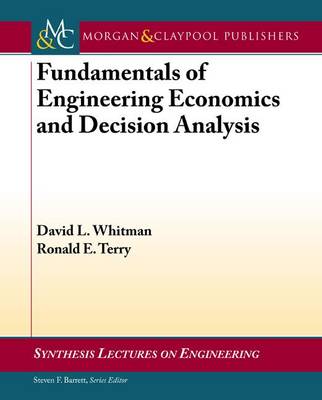Synthesis Lectures on Engineering
1 total work
Fundamentals of Engineering Economics and Decision Analysis
by David Whitman and Ronald Terry
Published 26 April 2012
The authors cover two general topics: basic engineering economics and risk analysis in this text. Within the topic of engineering economics are discussions on the time value of money and interest relationships. These interest relationships are used to define certain project criteria that are used by engineers and project managers to select the best economic choice among several alternatives. Projects examined will include both income- and service-producing investments. The effects of escalation, inflation, and taxes on the economic analysis of alternatives are discussed. Risk analysis incorporates the concepts of probability and statistics in the evaluation of alternatives. This allows management to determine the probability of success or failure of the project. Two types of sensitivity analyses are presented. The first is referred to as the range approach while the second uses probabilistic concepts to determine a measure of the risk involved. The authors have designed the text to assist individuals to prepare to successfully complete the economics portions of the Fundamentals of Engineering Exam.
